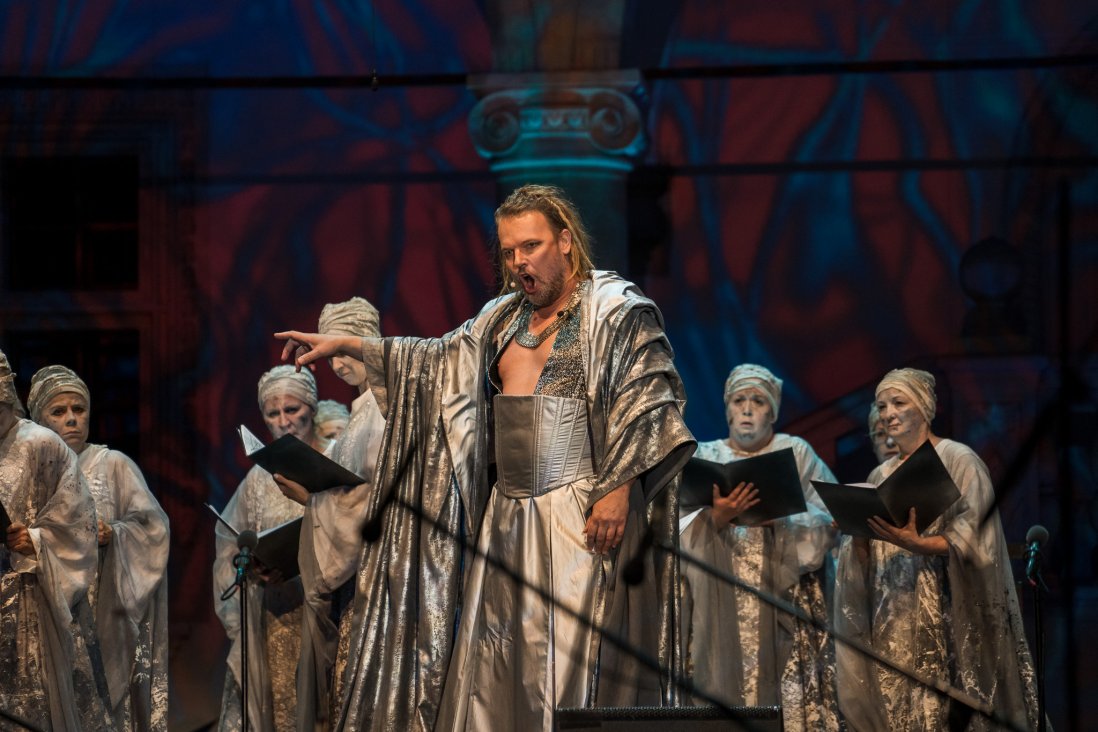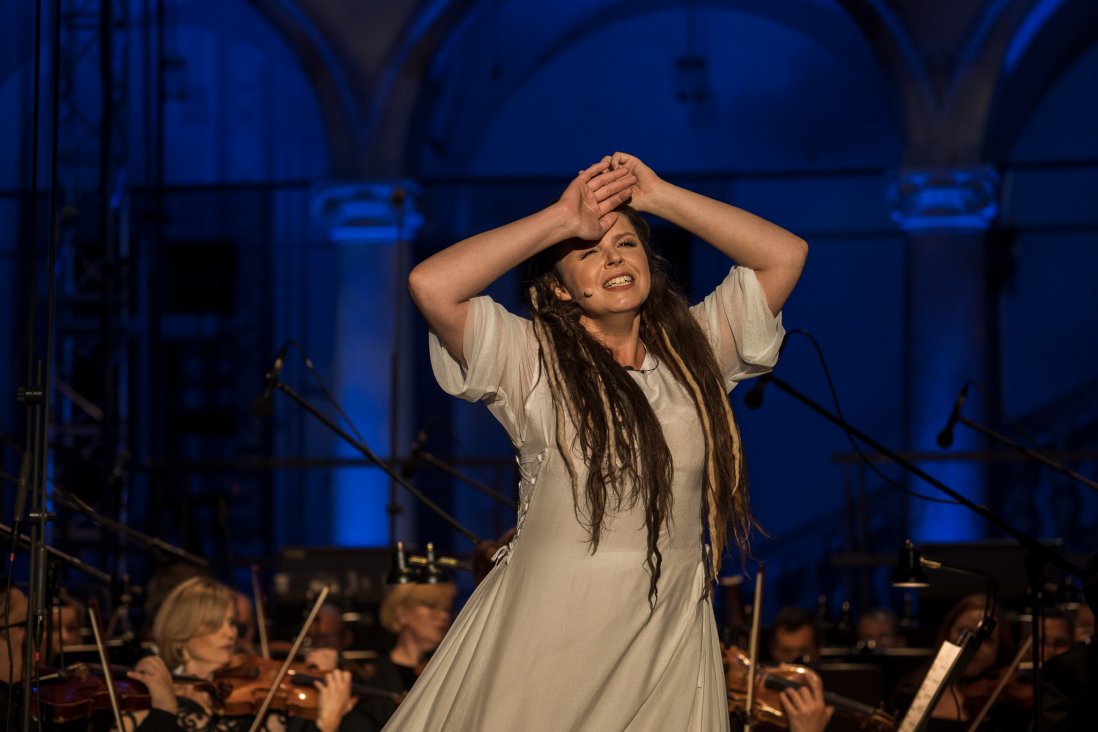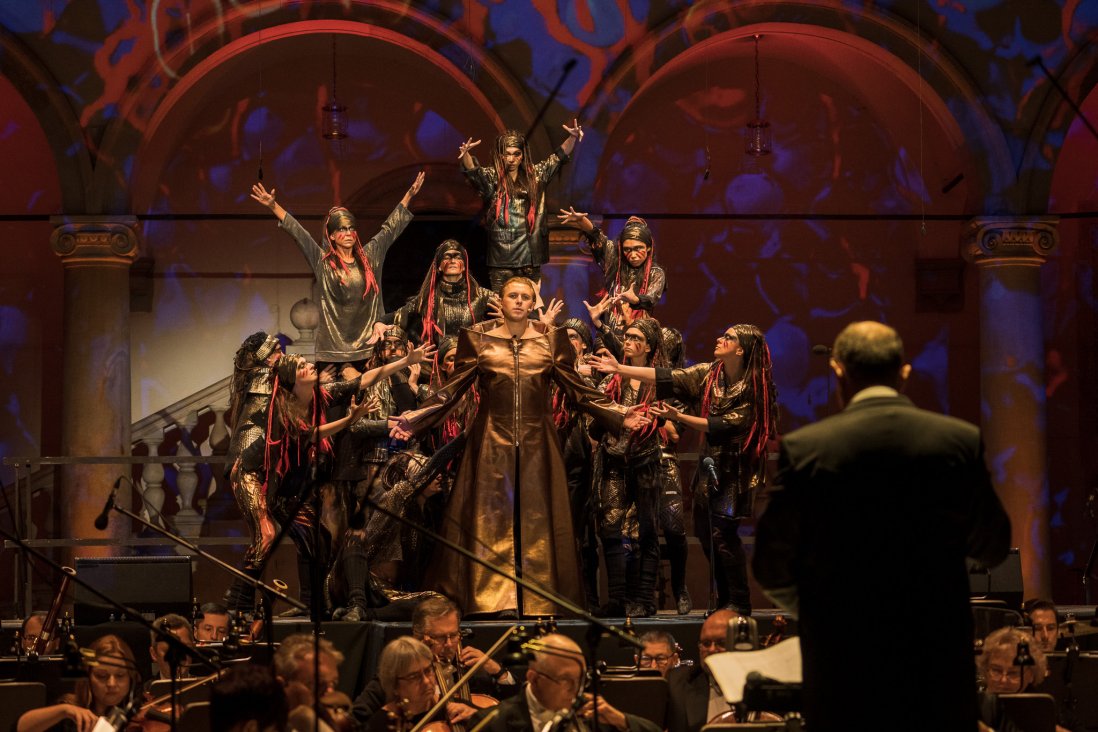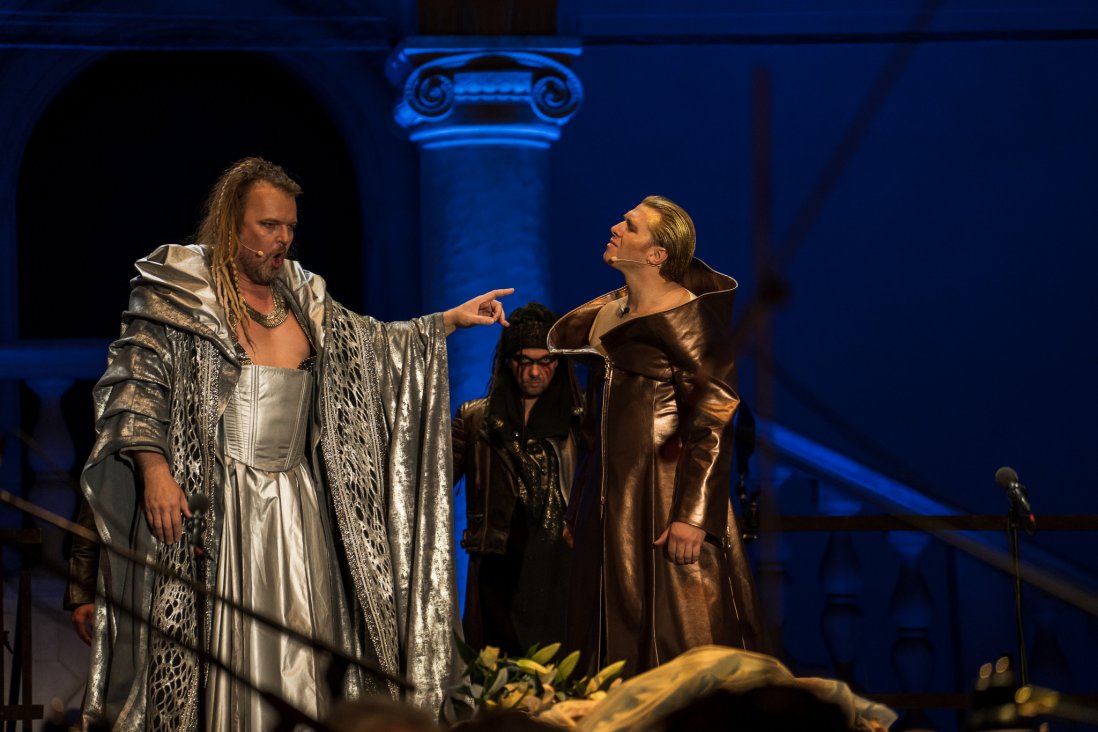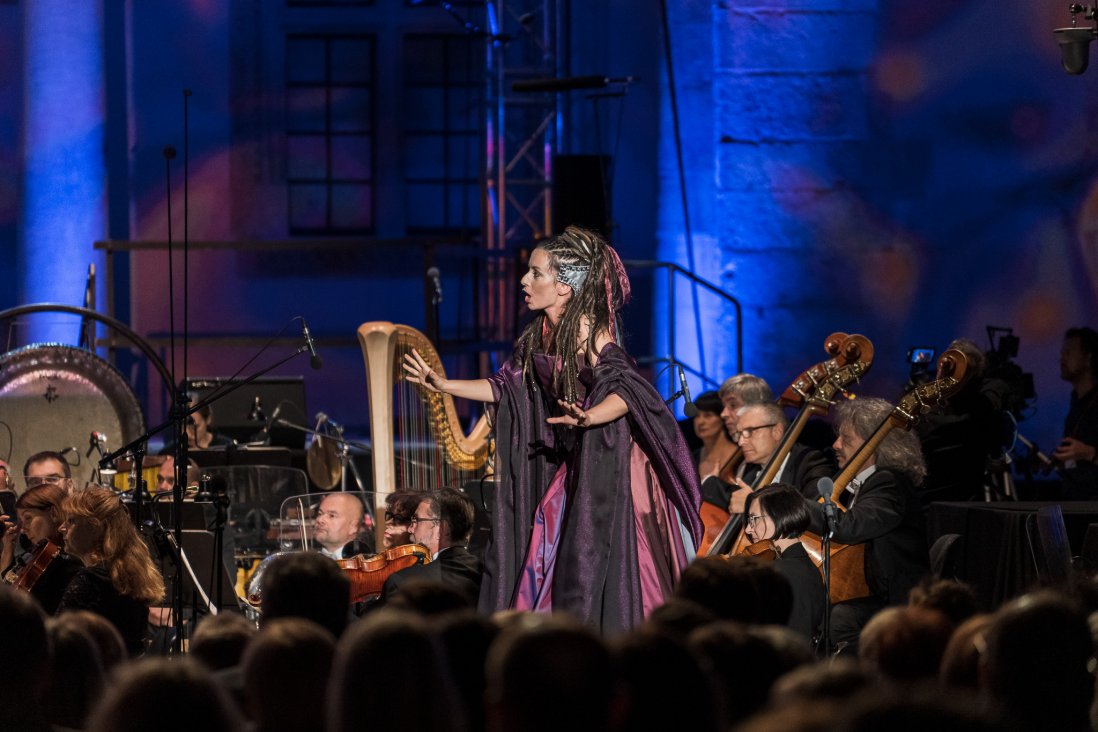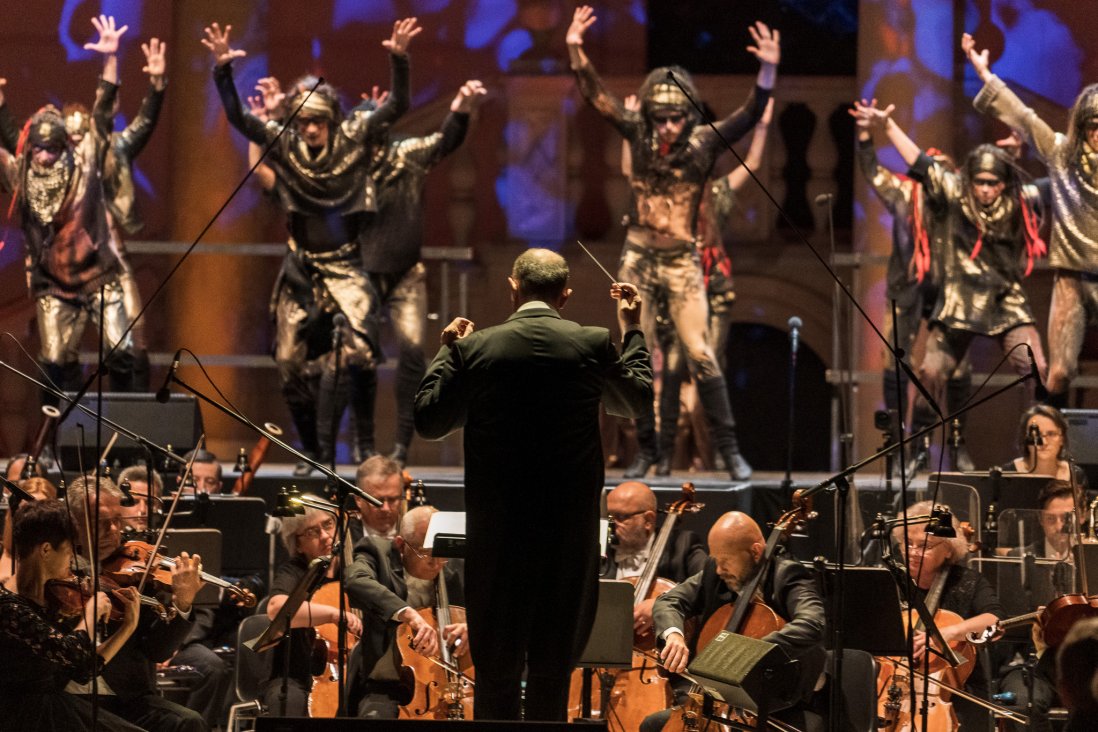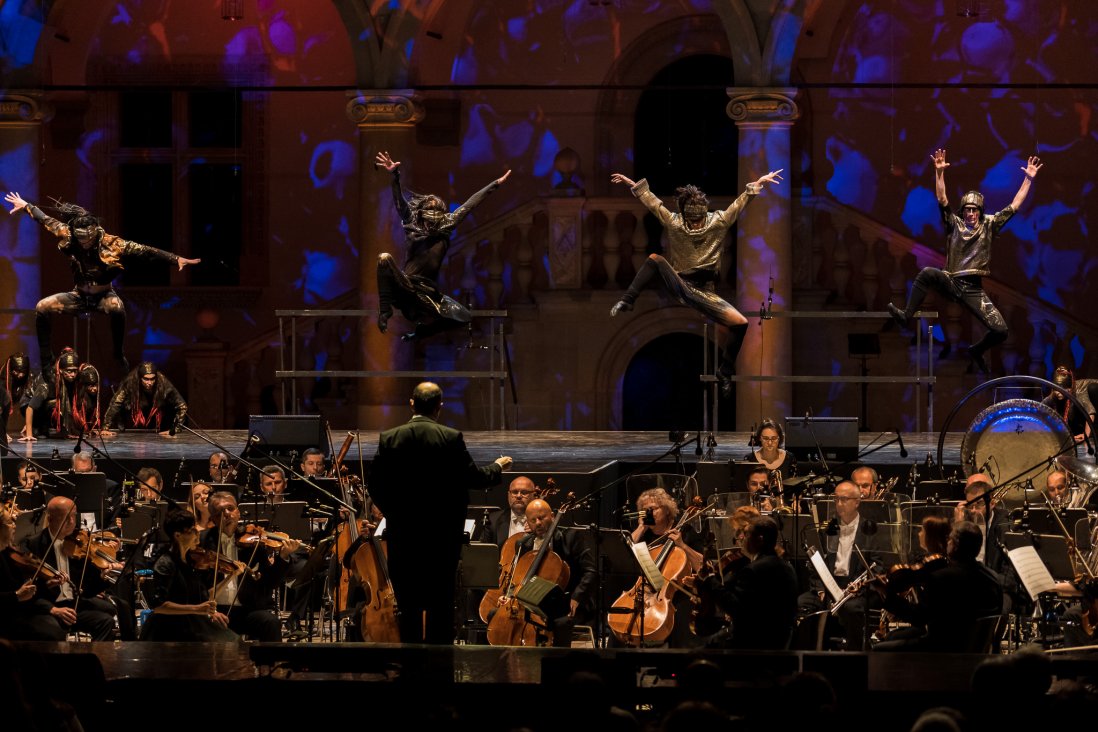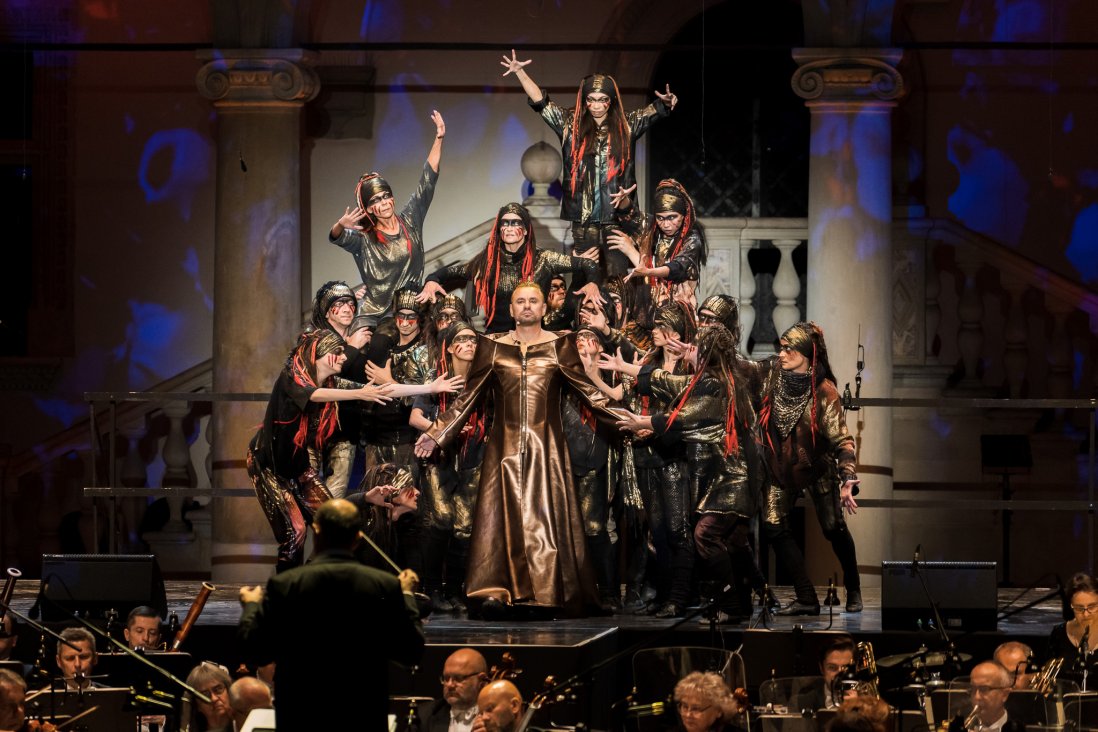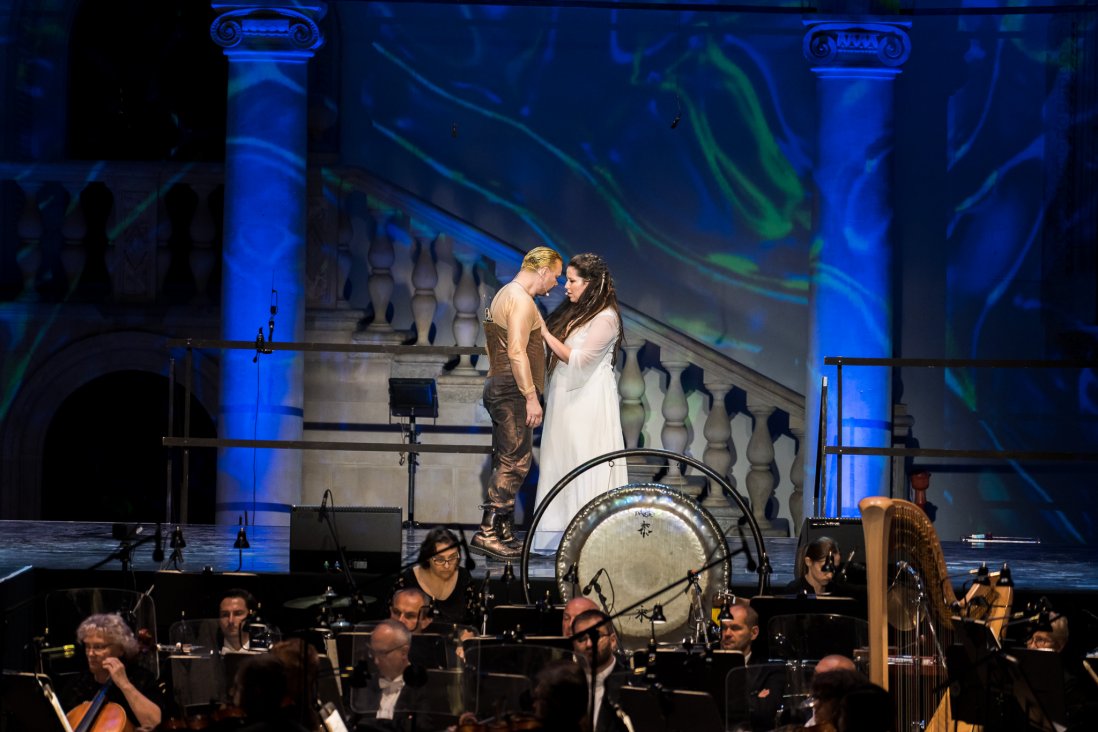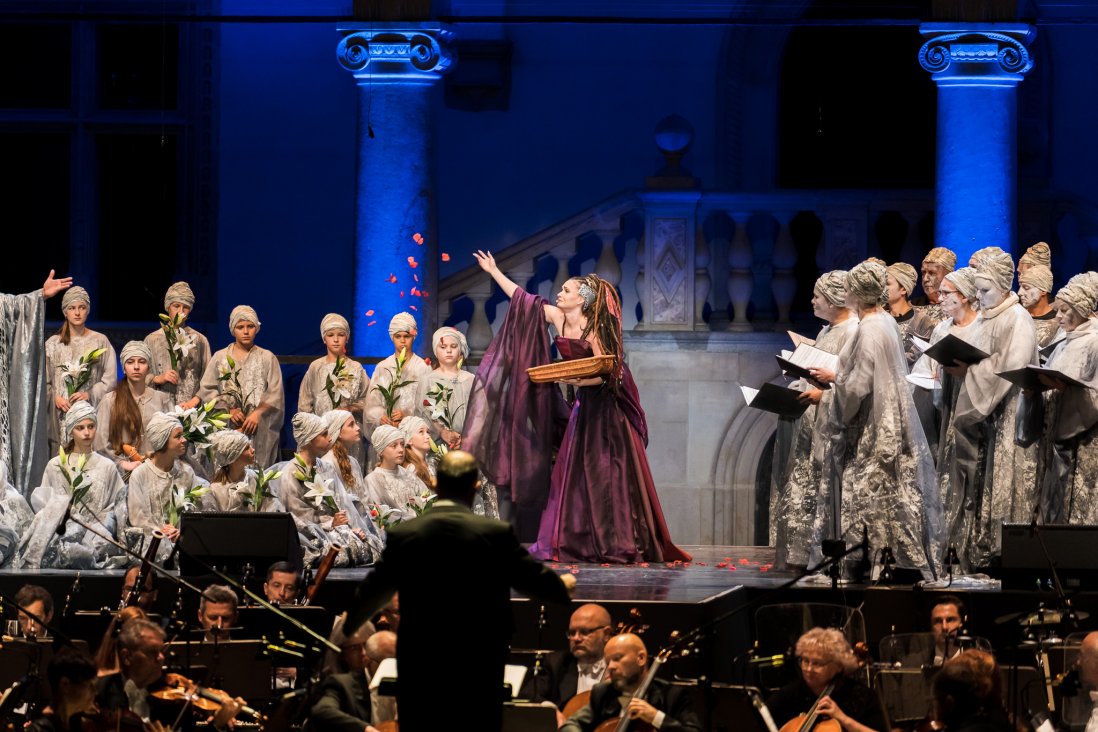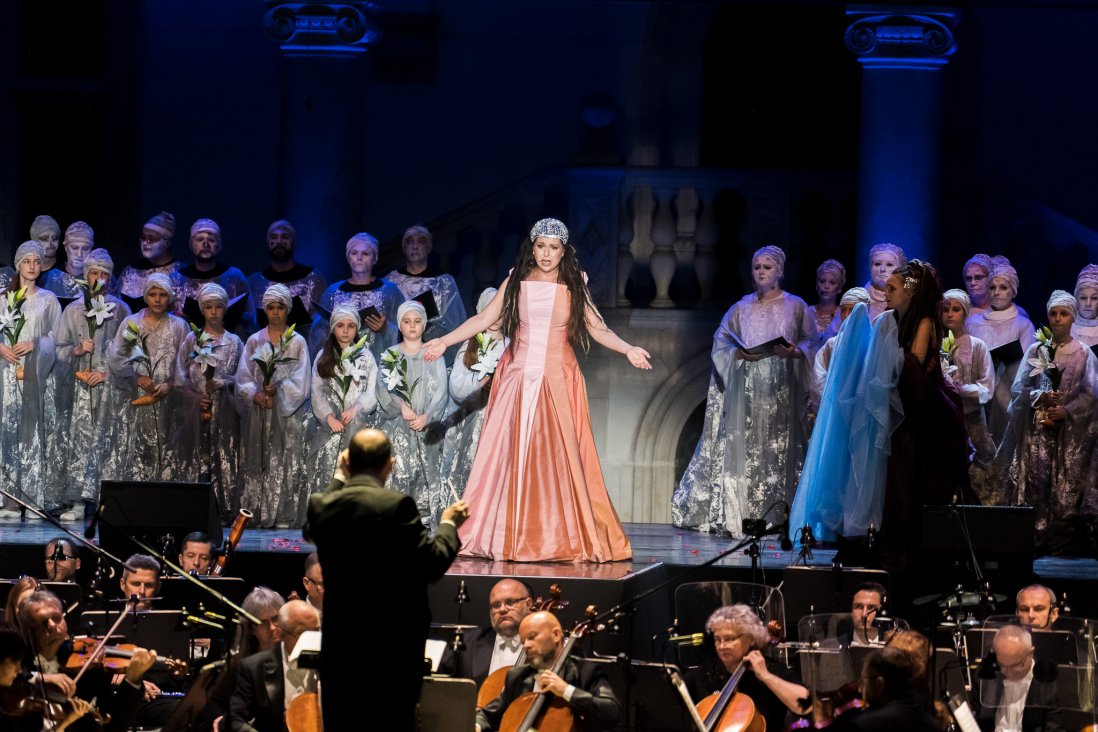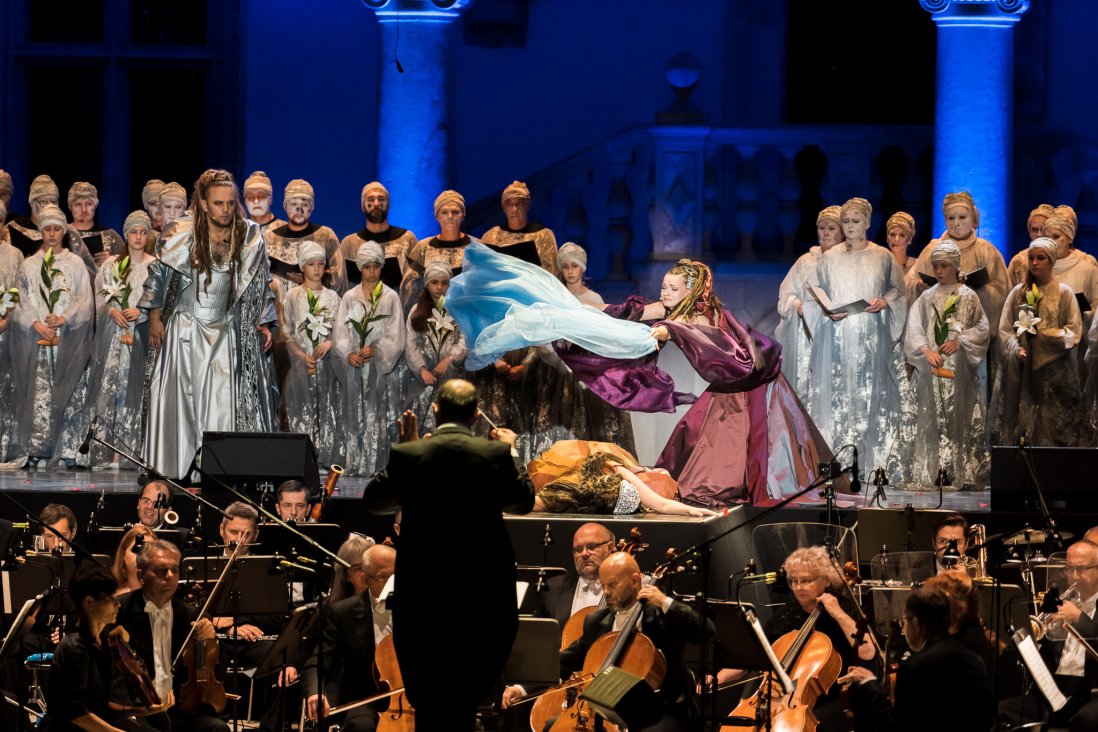Joanna Wnuk-Nazarowa’s “Wanda”: After the Première
Joanna Wnuk-Nazarowa’s “Wanda”: After the Première
The world première of “Wanda”, the first opera of the outstanding composer Joanna Wnuk-Nazarowa, took place on 10 September at the Arcade Courtyard of the Royal Wawel Castle.
The opera relies on Norwid’s mystery play and the première performance was the highlight of the Year of Cyprian Kamil Norwid, established by the Sejm of the Republic of Poland. The performance was repeated on 11 September.
It goes without doubt that “Wanda” is a work very closely linked to Kraków - this is testified not only by the theme of the legendary daughter of Krak, chosen by Norwid, but also the long-term relationship of the composer with the “city of the Polish kings” and the staging of both performances at the courtyard of the Royal Wawel Castle by the artists from our Theatre. However, this does not overshadow the universal message of the opera, as noted by Joanna Wnuk-Nazarowa.
“This is not a story about Wanda who did not want to marry a German. This is a story about beautiful, but also unfulfilled love, about obligation and liability, about choices that define our life and death. The characters created by Norwid are in this mystery play far from being one-sided, they are utterly realistic.”
“Every new score is a certain surprise” says Maestro Michał Klauza, music director of the performance, about “Wanda.” “This is always an interesting challenge, lined with a thrill of emotion. It is a great experience when you receive a manuscript first and see such nuances as the pressure of the pencil - this testifies to the emotions that accompanied the composer at a given moment. It is also a great joy that we were working on the world première of a work with a composer whom we could ask at any moment what she had in mind.”
“For me, “Wanda” was one of the most interesting female characters on which I have worked” notes director Waldemar Zawodziński. “On the one hand, Norwid humanised her and she is no longer only an idealised symbol; to this end, he introduced a unique, even though ostensible obvious procedure - her great love for the enemy, her love that is requited. Against all appearances, there are few stories where enemies are at the same time bound by love - great, passionate, bordering upon madness. On the other hand, Norwid made Wanda a mystical figure: as evidenced by her vision, the foreboding of Christ who appears suddenly as a perfect example of somebody who - wishing to redeem humanity - sacrifices himself.”
Agata Schmidt, who performed the role of Wanda during the première performance, says:
“I derive wild pleasure from discovering new music: I am immensely grateful to the composer for creating this piece - and in particular for the voice that I and Wanda [Franek] have at our disposal. This is a royal role - we die at the stage, there is a lot of drama and immense emotions; the music is not obvious, but it gets under your skin. I am a great fan of this work and I have been like this since the moment when I started reading the score - because - on account of my profession - music speaks to me first.”
The following soloists took part in the première performance: Agata Schmidt (Wanda), Tomasz Konieczny (Grodny), Andrzej Lampert (Rytyger/Skald) and Paula Maciołek (Panna). The event was aired by the Second Channel of the Polish Radio.
The second performance, on 11 September, had the following cast: Wanda Franek (Wanda), Sebastian Marszałowicz (Grodny), Pavlo Tolstoy (Rytyger/Skald) and Zuzanna Caban (Panna).
The soloists were accompanied by the Orchestra, the Choir, the Children’s Choir and the Ballet of the Kraków Opera conducted by Maestro Michał Klauza.
Janusz Wierzgacz was responsible for the choir preparation. Stage movement was prepared by Natalia Janina Niesobska, and the costumes by Maria Balcerek.
The event had the honorary patronage of Professor Piotr Gliński, Ph.D., the First Deputy Prime Minister and the Minister of Culture, National Heritage and Sports, who attended the première. On the day of the world première, flowers were placed by the symbolic urn of Norwid in the Crypt of the National Poets at the Wawel Castle; the event was attended by - apart from Minister Gliński - Iwona Gibas, member of the Board of the Małopolskie Province, Joanna Wnuk-Nazarowa, a composer, Bogusław Nowak, Director of the Kraków Opera and Daniel Cichy, director and editor in chief of Polskie Wydawnictwo Muzyczne.
“This is not a story about Wanda who did not want to marry a German. This is a story about beautiful, but also unfulfilled love, about obligation and liability, about choices that define our life and death. The characters created by Norwid are in this mystery play far from being one-sided, they are utterly realistic.”
“Every new score is a certain surprise” says Maestro Michał Klauza, music director of the performance, about “Wanda.” “This is always an interesting challenge, lined with a thrill of emotion. It is a great experience when you receive a manuscript first and see such nuances as the pressure of the pencil - this testifies to the emotions that accompanied the composer at a given moment. It is also a great joy that we were working on the world première of a work with a composer whom we could ask at any moment what she had in mind.”
“For me, “Wanda” was one of the most interesting female characters on which I have worked” notes director Waldemar Zawodziński. “On the one hand, Norwid humanised her and she is no longer only an idealised symbol; to this end, he introduced a unique, even though ostensible obvious procedure - her great love for the enemy, her love that is requited. Against all appearances, there are few stories where enemies are at the same time bound by love - great, passionate, bordering upon madness. On the other hand, Norwid made Wanda a mystical figure: as evidenced by her vision, the foreboding of Christ who appears suddenly as a perfect example of somebody who - wishing to redeem humanity - sacrifices himself.”
Agata Schmidt, who performed the role of Wanda during the première performance, says:
“I derive wild pleasure from discovering new music: I am immensely grateful to the composer for creating this piece - and in particular for the voice that I and Wanda [Franek] have at our disposal. This is a royal role - we die at the stage, there is a lot of drama and immense emotions; the music is not obvious, but it gets under your skin. I am a great fan of this work and I have been like this since the moment when I started reading the score - because - on account of my profession - music speaks to me first.”
The following soloists took part in the première performance: Agata Schmidt (Wanda), Tomasz Konieczny (Grodny), Andrzej Lampert (Rytyger/Skald) and Paula Maciołek (Panna). The event was aired by the Second Channel of the Polish Radio.
The second performance, on 11 September, had the following cast: Wanda Franek (Wanda), Sebastian Marszałowicz (Grodny), Pavlo Tolstoy (Rytyger/Skald) and Zuzanna Caban (Panna).
The soloists were accompanied by the Orchestra, the Choir, the Children’s Choir and the Ballet of the Kraków Opera conducted by Maestro Michał Klauza.
Janusz Wierzgacz was responsible for the choir preparation. Stage movement was prepared by Natalia Janina Niesobska, and the costumes by Maria Balcerek.
The event had the honorary patronage of Professor Piotr Gliński, Ph.D., the First Deputy Prime Minister and the Minister of Culture, National Heritage and Sports, who attended the première. On the day of the world première, flowers were placed by the symbolic urn of Norwid in the Crypt of the National Poets at the Wawel Castle; the event was attended by - apart from Minister Gliński - Iwona Gibas, member of the Board of the Małopolskie Province, Joanna Wnuk-Nazarowa, a composer, Bogusław Nowak, Director of the Kraków Opera and Daniel Cichy, director and editor in chief of Polskie Wydawnictwo Muzyczne.
